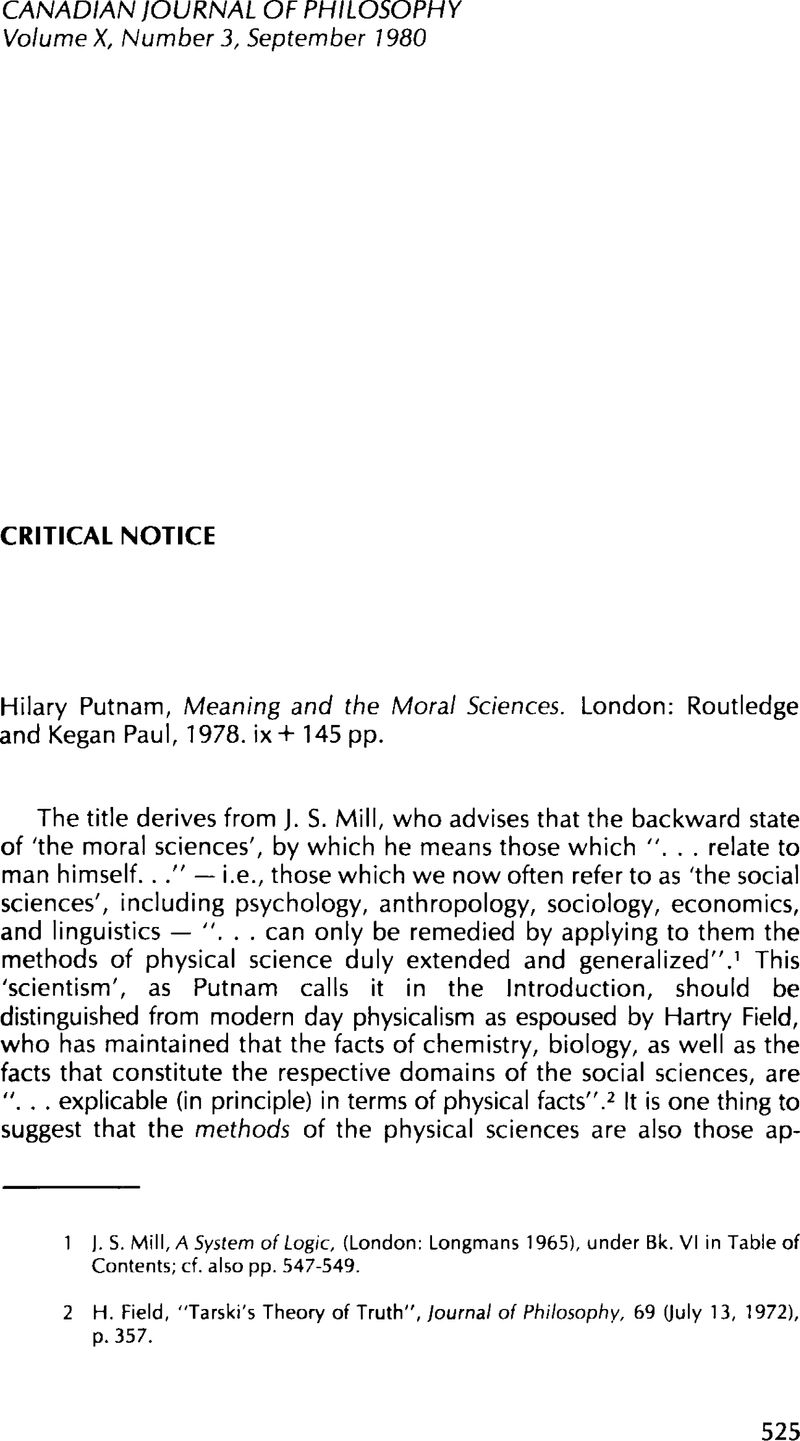No CrossRef data available.
Article contents
Hilary Putnam Meaning and the Moral Sciences. London: Routledge and Kegan Paul, 1978. ix + 145 pp.
Review products
Published online by Cambridge University Press: 01 May 1979
Abstract

- Type
- Critical Notice
- Information
- Copyright
- Copyright © The Authors 1980
References
1 Mill, J. S. A System of Logic, (London: Longmans 1965),Google Scholar under Bk. VI in Table of Contents; d. also pp. 547–549.
2 Field, H. “Tarski's Theory of Truth”, Journal of Philosophy, 69 (July 13, 1972). p. 357.CrossRefGoogle Scholar
3 Tarski, A. “The Establishment of Scientific Semantics”, in Tarski, Logic, Semantics, Metamathematics, (Oxford: Oxford University Press 1956), pp. 401–408.Google Scholar
4 Many of these are now collected together into two volumes: Mathematics, Matter and Method; Philosophical Papers Vol. I, and Mind, Language, Reality; Philosophical Papers Vol. II; (Cambridge: Cambridge University Press 1975).
5 Unless otherwise indicated, all page references are to Meaning and the Moral Sciences.
6 This is obscured by Putnam's apparent misuse of quotes. If we use ‘P1’ etc., as previously, to stand for a sentence in quotes, the disjunction would more properly be put ‘[He said P1 ![]() or [He said
or [He said ![]() or…’
or…’
7 Putnam, op. cit., p. 20. Putnam refers to Boyd's forthcoming volume Realism and Scientific Epistemology, Cambridge University Press. It is worth pointing out that in Boyd's published piece on this, “Realism, Underdetermination, and a Causal Theory of Evidence”, Nous, 7 (March, 1973) p. 1, there is an emphasis on evidence lacking in Putnam's characterization:
By scientific realism I mean the doctrine that the sort of evidence which ordinarily counts in favour of the acceptance of a scientific law or theory is, ordinarily, evidence for the (at least approximate) truth of the law or theory as an account of the causal relations obtaining between the entities quantified over in the law or theory in question.
This discrepancy is pointed out in Robert Deltete's unpublished paper, “Realism Revisited”.
8 In fairness to Putnam I must mention that the importantly different account that he gives in the paper “Reference and Understanding” (esp. pp. 100–1 07) of the causal-explanatory role of truth and reference tends to converge with Field's.


